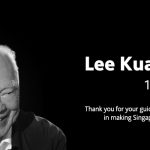
The Democratic Republic of the Congo (DRC) and Rwanda find themselves entangled in a crisis that has the potential to escalate into a full-blown regional war. The situation is dire, with South African, Burundian, and Tanzanian troops clashing with the Rwandan army, which is supporting the rebellion led by the March 23 Movement (M23). As the violence intensifies, innocent civilians bear the brunt of the conflict, resulting in a staggering seven million Congolese displaced from their homes.
Diplomatic efforts to address the crisis have been underway, including a special meeting at the United Nations Security Council and a mini-summit during the African Union annual meeting of heads of state. However, the root causes of the conflict remain complex and multifaceted. Rwanda denies backing the M23 rebellion and instead accuses the Congolese government of engaging in “massive combat operations” to expel Congolese Tutsi civilians. In turn, the Congolese government has launched a campaign against Rwanda, comparing its Rwandan counterpart to Adolf Hitler and accusing it of expansionist aims.
- 7 Lessons African Leaders Can Learn from Lee Kuan Yew for Development and Progress

- Strikes in Lamu: One Dead, Two Injured in Vehicle Torching Attack

- China’s Unstoppable Ascent: The Untold Story of the World’s Second-Biggest Economy

- A Comparison of Farmland Prices in Kenya and Other Countries

- Understanding Brazil’s Population in 2024

- Japan’s Economy Slips into Recession, Losing its Position as the World’s Third-Largest Economy

This crisis is not an isolated incident but rather part of a longstanding pattern of power projection and influence by Rwanda and Uganda into the eastern DRC. While international donors and United Nations peacekeepers provide humanitarian aid, they have done little to address the underlying dynamics driving the conflict. Resolving this crisis requires less hypocrisy from foreign donors, an end to Rwandan aggression, and a more accountable Congolese government.
However, the prospects of a grand bargain to address these issues seem distant at present. The existing peace processes, such as the “Nairobi process” for domestic negotiations and the “Luanda process” for regional talks, are either dead or on life support. Additionally, upcoming elections in Rwanda and the United States are unlikely to help calm tensions or focus efforts on resolving the conflict. To truly end the violence, a new approach is necessary, one that prioritizes the lives and well-being of innocent Congolese civilians.
The conflict took a significant turn when President Tshisekedi of the DRC altered his approach, breaking his coalition with his predecessor and moving to cement his position in power. He declared a state of siege in two eastern provinces, reshuffled military leadership, and shifted his regional alliances. Tshisekedi began prioritizing relations with Uganda, a former rival of Rwanda, and allowed Ugandan and Burundian troops to conduct operations on Congolese territory against rebel groups.
This shift in regional dynamics left Rwanda feeling isolated and vulnerable, leading it to resume supporting the M23 rebellion. However, the fault lines have since shifted again, with Rwanda repairing relations with Uganda and the East African Community intervention force, comprising troops from Kenya, South Sudan, Burundi, and Uganda, being asked to leave the DRC. Tshisekedi, who initially saw East African countries as allies, has now turned his focus southward.
The military situation in the eastern DRC has also undergone significant changes. Troops from the Southern African Development Community (SADC), including South Africa, Tanzania, and Malawi, have deployed to combat the M23 alongside the Burundian army. However, casualties have already been reported, with South African soldiers and Burundian forces suffering losses. The conflict has also seen an escalation in military capabilities, with Rwanda allegedly deploying surface-to-air missiles, armed drones targeting UN bases, and the DRC acquiring combat drones.
Meanwhile, the Congolese army has partnered with private security contractors and local militias known as Wazalendo. These partnerships, combined with the Congolese government’s inability to make significant progress, have further complicated the situation. In early February, M23 forces surrounded the town of Sake, resulting in the displacement of an additional 135,000 people. The Congolese government’s reliance on these unreliable partners and its inability to stabilize its own territory highlights the need for a more accountable and effective approach.
Foreign actors involved in the crisis have sent mixed signals. While the US and France have called on Rwanda to withdraw its troops from the DRC, the US remains the largest donor to Rwanda, providing significant financial aid. Other countries, such as the UK and the EU, have been less proactive in addressing the conflict. The EU’s deal to boost mineral exports from Rwanda has caused controversy, as minerals, particularly gold, have played a significant role in fueling the crisis, with neighboring countries smuggling them from the DRC.





